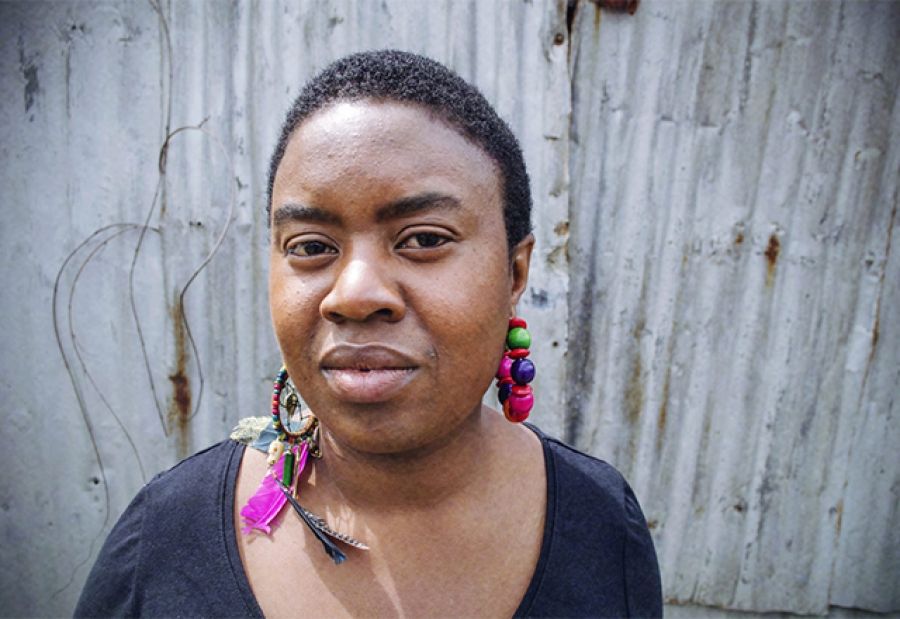
- Free Article: No
- Contents Category: Open Page
- Custom Article Title: Open Page with Maxine Beneba Clarke
- Review Article: No
- Online Only: No
- Custom Highlight Text:
Bigger Thomas, the anguished anti-hero in Richard Wright’s Native Son, never fails to make me seethe and squirm with discomfort. Although obviously not fictional, Maya Angelou was so engaging I followed her spirit right through her seven autobiographies.
What is your favourite music?
Lyric-driven music has always drawn me. Some of the first short stories I ingested were classics: Billie Holiday singing Strange Fruit; Harry Belafonte crooning Jamaica Farewell.
And your favourite book?
J. California Cooper’s short fiction collection A Piece of Mine.
Who is your favourite author?
Lionel Fogarty, J. California Cooper, Ntozake Shange, Wole Soyinka, Maya Angelou …
And your favourite literary hero and heroine?
Bigger Thomas, the anguished anti-hero in Richard Wright’s Native Son, never fails to make me seethe and squirm with discomfort. Although obviously not fictional, Maya Angelou was so engaging I followed her spirit right through her seven autobiographies.
Name an early literary idol or influence whom you no longer admire – or vice versa.
Once, I was a Jane Austen fan. Back at high school, there wasn’t much else available, by way of female authors.
How old were you when your first book appeared?
Twenty-seven: a poetry chapbook, Original Skin, published by Picaro Press.
What, if anything, impedes your writing?
Almost everything impedes my writing: parenthood, friendships, other paid work, the sheer administration of life. But then, many of these things also support and inspire my work.
How do you regard publishers?
On the whole, Australian publishers are much too ‘safe’ in their decision-making. Australian readers are more adventurous and capable than they’re given credit for being. I find publishers a uniformly passionate crowd, though.
What do you think of the state of criticism?
I mostly stay away from the literary criticism world. Lately though, I have noticed some excellent writing in reviews themselves, which does speak to the calibre of Australian critics.
If you had your time over again, would you choose to be a writer?
Absolutely.
What do you think of writers’ festivals?
I have mixed feelings about them. I love people – they fascinate me. The opportunity to chat with a room full of engaged readers is always a privilege – no matter the discussion. There are also some dear writer friends I only ever get to catch up with on the road. On the other hand, a weird atmosphere can occur when usually solitary creatures are brought out en masse in the broad light of day, on the premise of civil interaction. The general lack of diversity at festivals – both on stage and off – is often frustrating.
Do you feel artists are valued in our society?
It can be too easy to feel they categorically are, when art is both your passion and vocation, and the worlds in which you move respect this. Out there, though, in the wide world, art and artists are increasingly undervalued.
What are you working on now?
The Hate Race, a memoir about growing up black in white and middle-class Australia in the 1980s and 1990s.


Comments powered by CComment